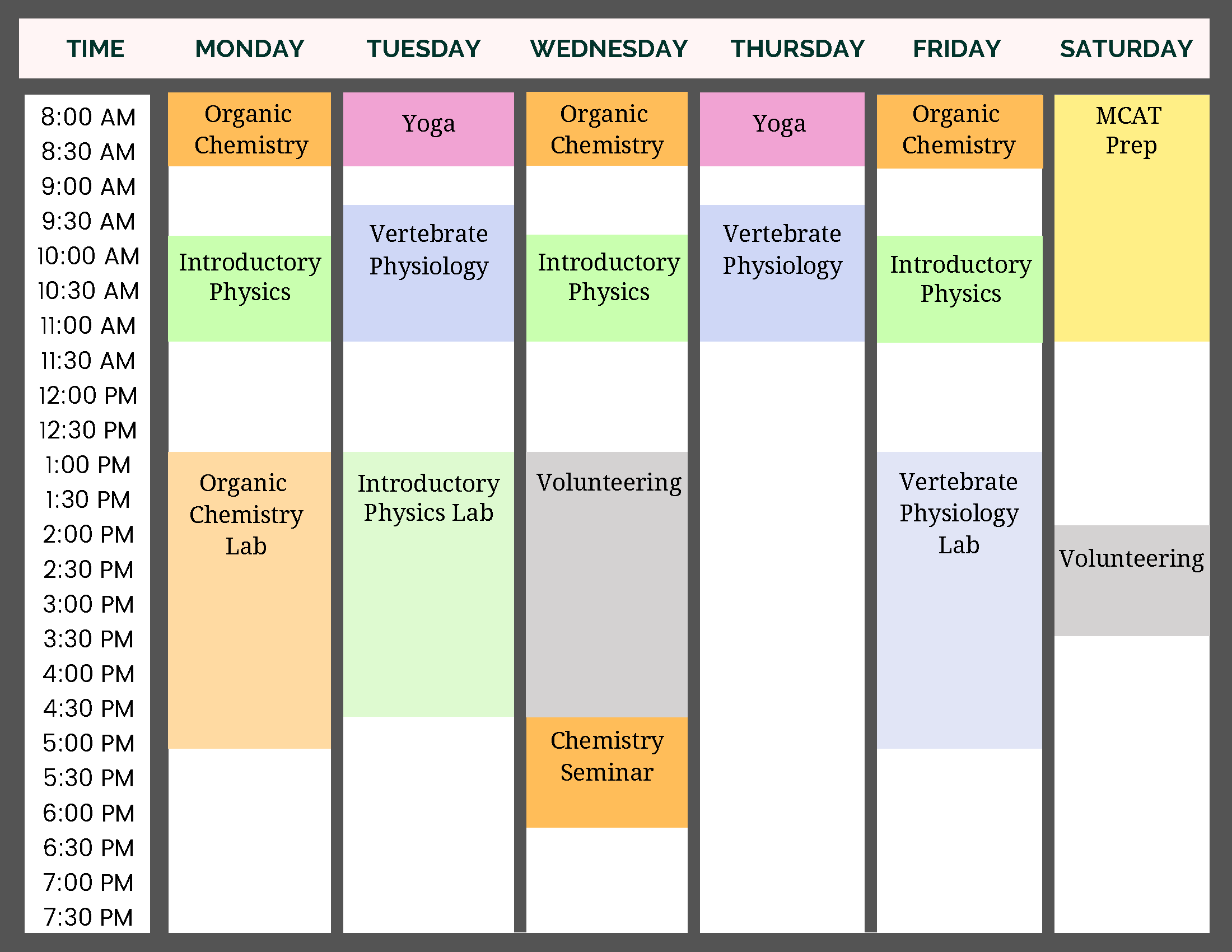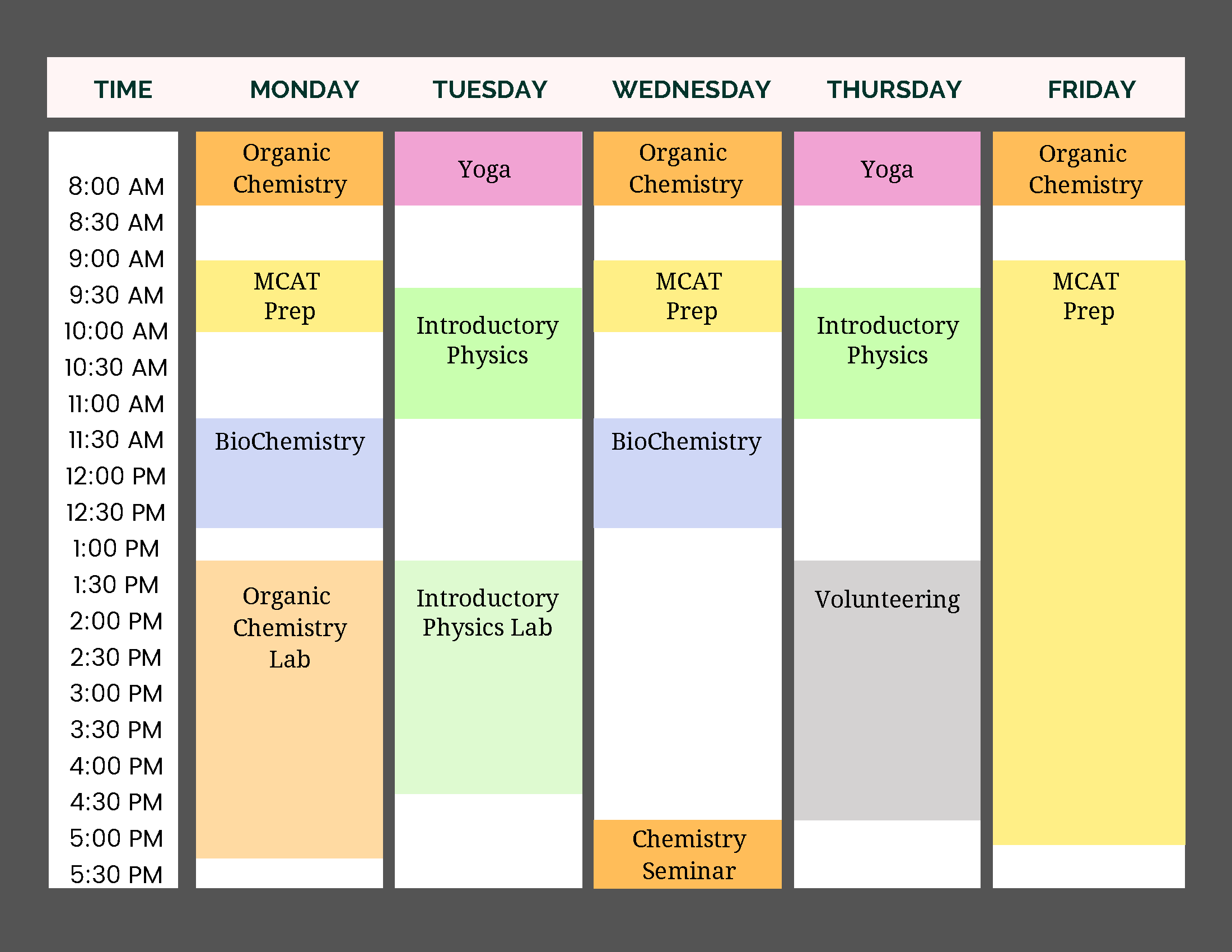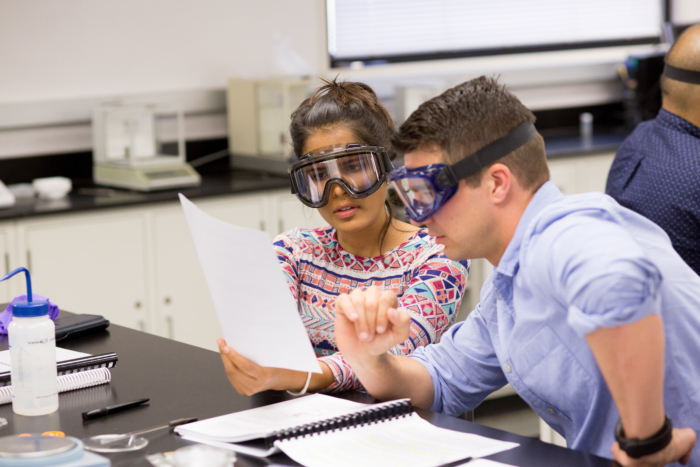
The Scripps post-bac curriculum is broken down into one year of courses in the natural sciences. During the summer, students take two semesters of general chemistry and one semester of biology. During the fall semester, full-time students continue to complete the premedical requirements by taking one semester each of vertebrate physiology, organic chemistry and physics. The following spring semester, they take biochemistry, organic chemistry, and physics. These courses not only fulfill the basic science requirements needed to apply to medical and professional schools, they also cover important concepts that help prepare students for the MCAT. Students take these classes alongside undergraduate students at the Keck Science department.
The program can be adjusted based on individual students’ needs. For example, if a student has already taken introductory biology, it can be substituted for an upper-division class. Similarly, some students opt for the part-time option, taking fewer classes each semester, to better suit their timeline and academic goals. These accommodations will be discussed with your adviser before the school year begins.
Along with class and lab, post-bac students are engaged in extracurricular activities throughout the academic year. Post-bac students volunteer at least four hours/week, make time in their schedules for MCAT preparation, and attend workshops provided by the program. It is essential to practice excellent time management while attending this program.
Typical Week
While every post-bac’s schedule is different, this is an example selection of what a typical week would look like for a full-time student.
Summer
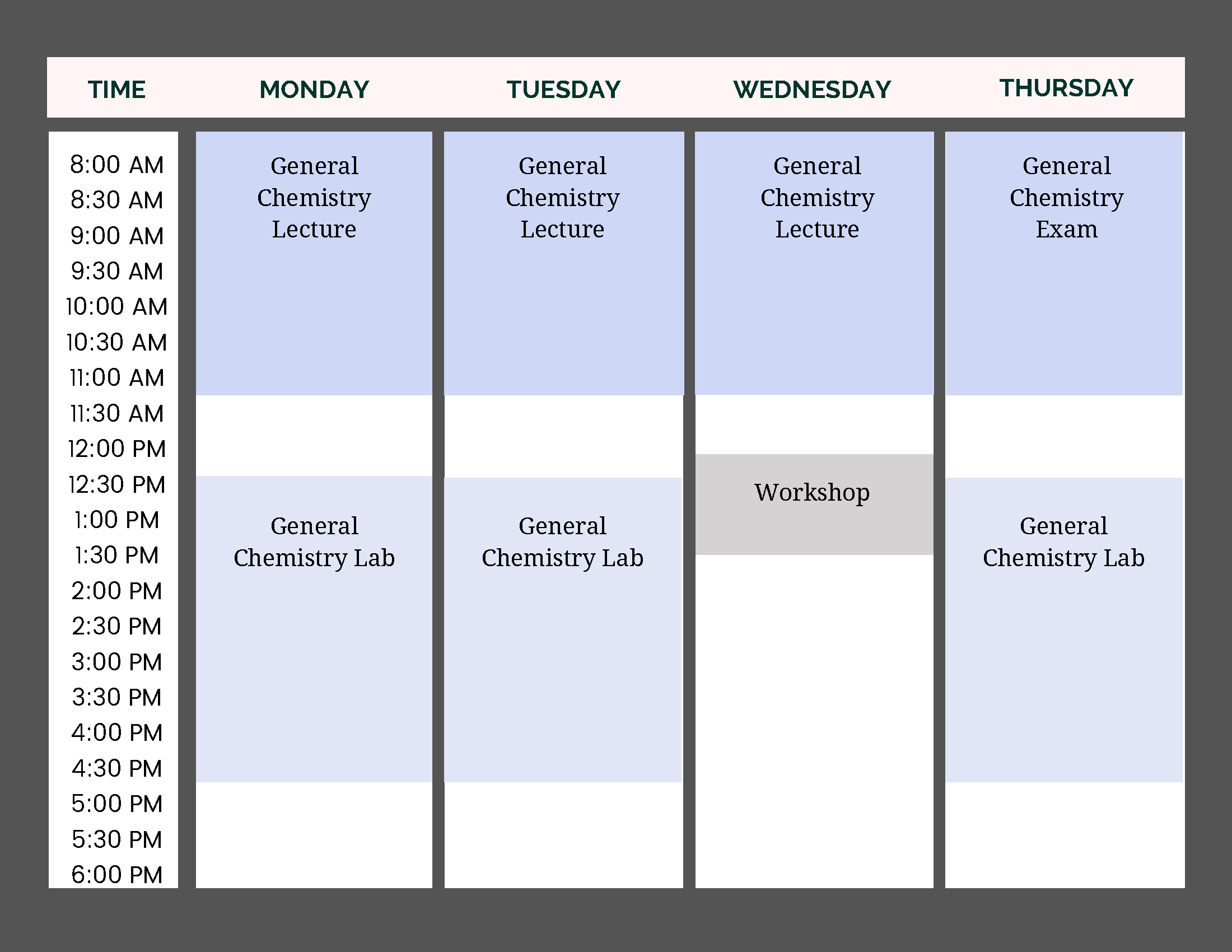
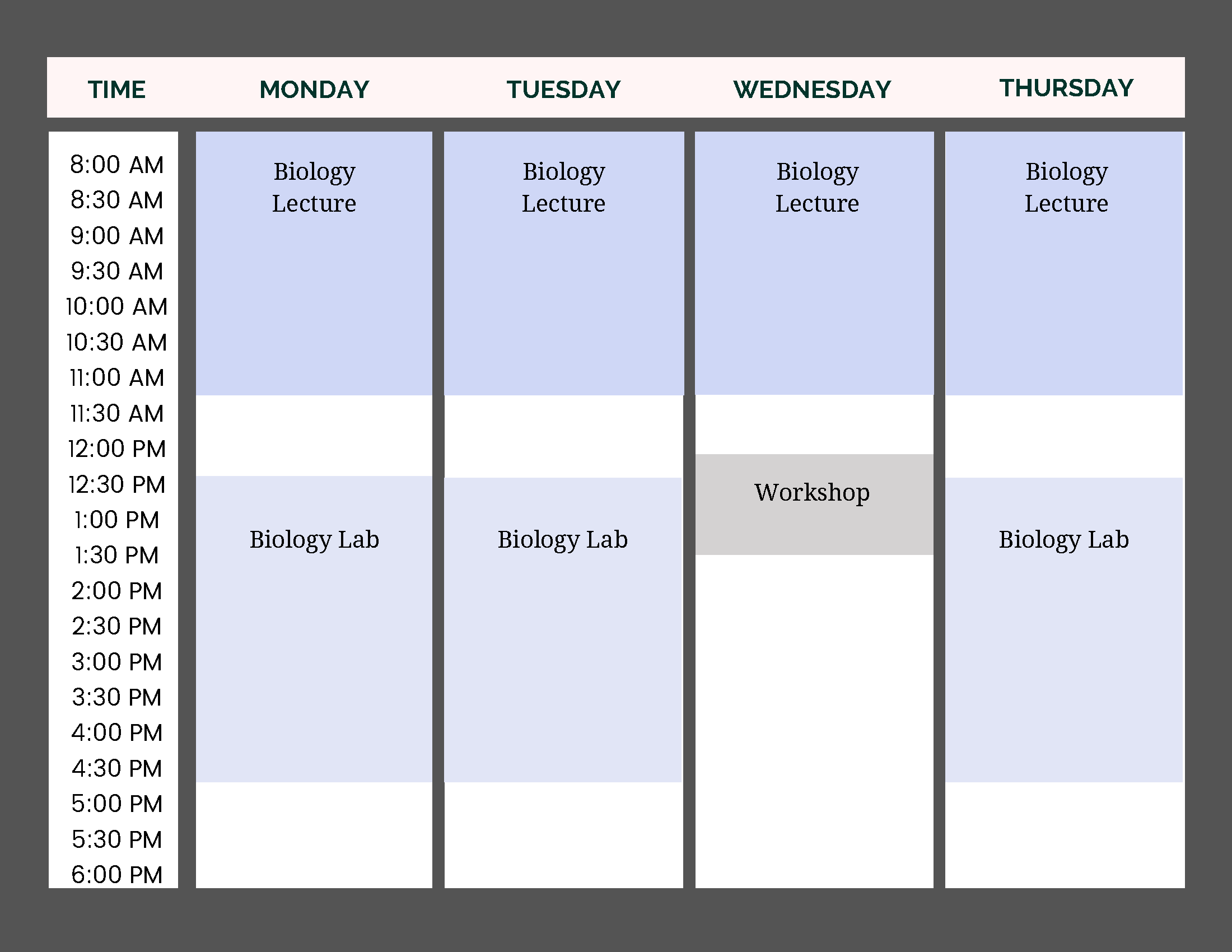
Fall/Spring
